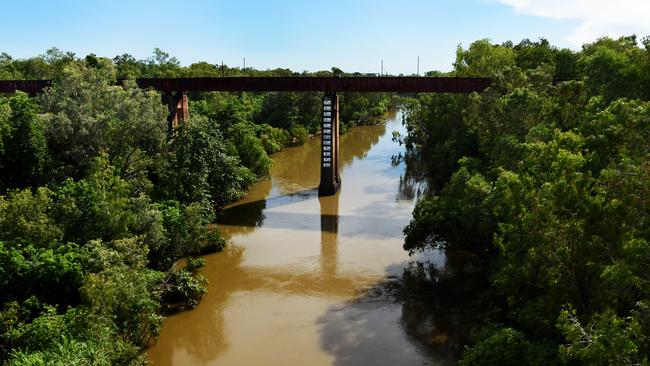Thorpe chairs PFAS senate committee on toxic chemicals found across the NT
Submissions close next week for a federal probe into the ‘asbestos of the 21st century’ which have plagued Northern Territory waterways for decades.
Politics
Don't miss out on the headlines from Politics. Followed categories will be added to My News.
Submissions close next week for a federal inquiry into the “asbestos of the 21st century” which have plagued Northern Territory waterways for decades.
A Senate select committee on PFAS (per and polyfluoroalkyl substances) was appointed in August to inquire into the extent, regulation and management of PFAS around the country.
It has so far heard from government departments, health experts and PFAS contamination and remediation experts, including the CSIRO, which told the committee there were significant knowledge gaps in Australia regarding PFAS distribution and scale.
“There is also likely an underestimation of the future impacts of PFAS in Australia,” CSIRO’s submission said.
“PFAS are considered contaminants of critical concern due to their persistence, widespread distribution in the environment, and potential for adverse impacts on human health and the environment.”

Committee chair, independent Victoria Senator Lidia Thorpe, said the chemicals already affected “every single person in the world”.
“PFAS are the asbestos of the 21st century, just far more prevalent and far less understood.
“We’ve already seen worrying instances of cancer clusters with suspected links to PFAS chemicals. We cannot take them seriously enough,” she said.
“This committee has the opportunity to drive change that will protect and improve the health of every single person, and the health of our waterways and country.
“This is particularly important for First Peoples, whose cultural practices, country, waters and totems are under threat from these harmful chemicals – not just on this continent, but across the world.”

PFAS chemicals are per- and polyfluoroalkyl substances, a group of thousands of chemicals that do not break down, and are resistant to heat, water and oil.
They are used in firefighting foams and common consumer products like non-stick pans, food packaging, dental floss, cosmetics and activewear.
Studies have shown PFAS contamination of ground and drinking water is widespread globally, and it is understood all humans carry some level of PFAS concentration in their blood due to the prevalence of these chemicals in the environment.
PFAS have been linked to environmental and health issues, including some cancers, but much remains unknown about the scale of potential impacts of these chemicals with successive governments failing to pursue stronger regulation.
In the Territory’s most high profile case, PFAS leached into the Katherine River during firefighting training at the Tindal RAAF Base between 1988 and 2004, spreading kilometres and impacting drinking water in the town.
It was a problem that lingers to this day, and resulted in a $92.5m federal payout in 2020 after locals won a class action compensation claim.
Traces of PFAS have also been found in water in Alice Springs, Darwin, Adelaide River, Batchelor, Pine Creek, Tennant Creek and Yulara.
The Senate committee is due to deliver its final report in August next year.





